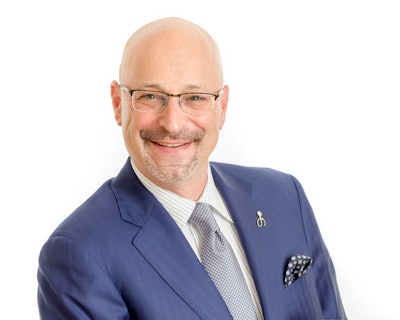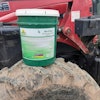
The unforeseen and unpredictable can shake one’s confidence to the core. When people fear they are going to lose their jobs or perhaps a sale, they tend to hold on tighter or take any deal. In doing so, they tend to accept more and more responsibility and stretch themselves thin. But then they can become inefficient and less successful. In other words, holding on tighter in an attempt to ensure job security is actually harmful and professionally destabilizing.
Your company and its employees should not attempt to be everything to everybody. When you try to do it all, you often wind up making some bad decisions. You often settle, which leads to a feeling of dissatisfaction with your choices. In that event, everyone suffers: the client, the employer, your colleagues and you.
A strong indicator of success is your ability to be vulnerable. You must know your strengths and weaknesses, and have the courage to say "no" and walk away when necessary.
Vulnerability can be a secret weapon in sales. When people think of sales, the words “aggressive” and “pushy” often come to mind. The word “vulnerable” doesn't—and that reason alone proves its importance. Vulnerability allows your customers to view the entire sales industry through a new prism.
In a sales-driven company, all employees recognize that they play a vital role in the sales cycle. Furthermore, they are more likely to be seen as valuable if they know and can communicate their specific area of expertise and stick to it. The same goes for your sales force. The same goes for you as a company owner. The same goes for your company itself. When you can communicate your value proposition in a compelling way, you make yourself both vulnerable and secure at the same time. Why? Because now people know what they are “buying” in you, and you can now do a much better job.
4 points to keep in mind
1. Vulnerability is tough. By holding onto all the responsibilities, or taking any business that comes your way, you increase the chances of becoming mediocre because you can’t do it all. Being vulnerable means that you are able to say "no" to the so-called opportunities that actually are not quality business.
2. Vulnerability is nobility. People want to deal with others who know what they can and can't do. In this way, being vulnerable earns you respect. When you are engaged to do what you do well, you increase your security, your role in the sales process, and the customer experience. Vulnerability is the desire to ask someone for feedback, and be prepared to hear the answer and not be defensive.
3. Vulnerability is a professional skill. It takes a high degree of professionalism and maturity to know that you contribute in a certain way, and in other ways you don’t. Knowing where that line is and when not to cross it is the hallmark of a true professional—and someone people want to buy from or someone people want to work with.
4. Vulnerability is cool. A sale is a complex series of interactions among people who all contribute some form of intellectual capital to the sales process. It is through these interactions that clients or prospects get what they need to say "yes." When you accept the fact that staying focused on your own area of expertise is valuable, you’ll be at peace with being vulnerable. Most important, you’ll be confident and on your game.
Simply put, people will buy you and from you when they know you are real. Being truly vulnerable means that you are not afraid to show your authentic self.
Todd Cohen, CSP, is an accomplished and sought-after speaker, sales culture expert and author of "Everyone’s in Sales; Stop Apologizing." Todd’s dynamic and motivational presentations are based on the foundation that regardless of career path or position, everyone is a salesperson. Since 1984, Todd has led sales teams to deliver more than $850 million in revenue for leading companies including Xerox and Thomson-Reuters. For more information or to book Todd Cohen for your next meeting, visit ToddCohen.com.




















